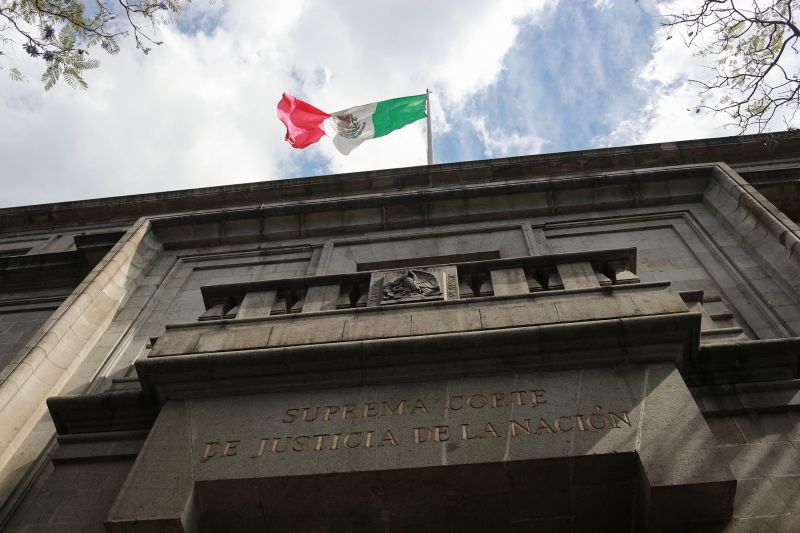
Mass Resignation hits Mexico’s Supreme Court: Is Judicial Reform to blame?
As a groundbreaking move in the realm of legal and institutional reform, a majority of justices in Mexico’s Supreme Court, known as the Supreme Tribunal of Justice of the Nation (STJN), recently tendered their resignations. This decision was made following a nationwide judicial reform, which has ignited debates regarding the future of the nation’s legal system and governance structures.
Mexico’s judicial reform, which was initiated with the purpose of overhauling the nation’s legal infrastructure, is the instigator behind these unforeseen resignations. A core component of this reform was the extension of Supreme Court judges’ tenure, which has been fiercely criticized by certain sections of civil society and opposition parties. They are arguing that the move could potentially jeopardize the independence and integrity of the judiciary.
The resignations, which include a majority, but not all justices, have sent shockwaves through the country’s legal circles and beyond. Their collective departure is a clear demonstration of their disapproval of the governmental reform, reflecting a significant level of discord and apprehension within the judiciary itself. These resignations, offering a rare display of judicial resistance, contain within them broader implications for the country’s democratic processes and rule of law.
While the government insists that the objective of the reform is to improve operational efficiency and combat corruption within the legal system, critics worry it may unduly empower the country’s executive branch. They fear that extending the tenure of justices gives the reigning political party an opportunity to exercise disproportionate influence over legal affairs which potentially undermines the judicial independence.
In exploring the immediate reactions, there has been a notable division in public opinion. Supporters of the reform view it as a necessary evolution of Mexico’s legal system, designed to increase its effectiveness and accountability. They argue that the elongation of tenure allows for more experienced justices, who can better serve the needs of the public and the legal system.
Opposition voices, however, argue that the reform risks political interference, excess of power, and a lack of checks and balances. They contend that the resignations of the justices is a dire reflection of this threat and a plea for the preservation of an autonomous and balanced judicial system.
Looking forward, the vacancies left by the resigning justices present an immediate challenge, as the process of appointing their replacements will be under intense scrutiny. In the broader sense, these resignations provide an opportunity for a national conversation about the role of the judiciary, its independence, and the mechanisms ensuring its accountability.
The situation is certainly complex, as it weighs the ambition for progress and reform against the need for stable governance structures and the preservation of judicial independence. Above all, however, the recent resignations in Mexico’s supreme court have proven that impactful dialogue and actions can emerge from within the justice system itself, even at the highest level of judiciary authority. The world now watches to see how this situation unfolds, as Mexico continues to shape its judiciary for the future.
